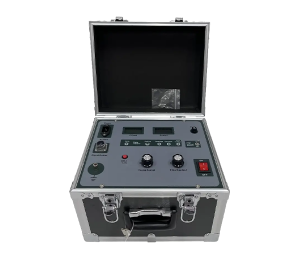 English
English


oil analysis equipment
Understanding Oil Analysis Equipment Enhancing Machinery Reliability
Oil analysis is a critical component in the maintenance and management of machinery across various industries. It involves the evaluation of lubricating oils and other fluids to assess their condition, identify contaminants, and determine the wear and tear of machinery components. For this process to be effective, specialized oil analysis equipment is necessary.
What is Oil Analysis Equipment?
Oil analysis equipment encompasses a range of instruments and tools designed to evaluate the physical and chemical properties of lubricants. These devices can provide insights into the oil's condition, including viscosity, acidity, and the presence of wear particles. The primary goal of using this equipment is to extend the lifespan of machinery, prevent unexpected breakdowns, and reduce maintenance costs.
Types of Oil Analysis Equipment
1. Spectrometers These are used to conduct elemental analysis of oil samples. By measuring the intensity of light absorbed or emitted by the oil, spectrometers can identify the presence of metal particles, indicating wear and potential issues within components.
2. Viscometers Viscosity is a critical property of lubricating oils, influencing their ability to create a protective film around moving parts. Viscometers measure how easily oil flows, helping to determine if it has degraded due to heat or contamination.
oil analysis equipment

3. FTIR (Fourier Transform Infrared) Spectroscopy FTIR is employed to analyze the chemical composition of oil. It helps detect oxidation products, contamination, and the presence of water, which can significantly affect performance.
4. Particle Counters These devices quantify the size and number of particles in oil, allowing for an assessment of contamination levels. Higher particle counts can indicate issues like poor filtration or excessive wear.
5. Water Content Analyzers Water can be detrimental to oil performance. These analyzers help detect the amount of free and emulsified water in lubricating oils, enabling timely intervention before damage occurs.
Importance of Oil Analysis
Investing in oil analysis equipment allows companies to adopt predictive maintenance practices. By regularly monitoring oil conditions, operators can schedule maintenance activities accurately, significantly reducing unplanned downtime. Furthermore, oil analysis helps in making informed decisions about oil changes, preventing premature replacements that can incur unnecessary costs.
Conclusion
In an era where efficiency and reliability are paramount, oil analysis equipment plays a vital role in machinery maintenance strategies. With the right tools, organizations can enhance the performance of their equipment, ultimately leading to higher productivity and lower operational costs. As technology advances, the accuracy and capabilities of oil analysis equipment will continue to evolve, providing even greater benefits to industries that rely on machinery for their operations.
-
Differences between open cup flash point tester and closed cup flash point testerNewsOct.31,2024
-
The Reliable Load Tap ChangerNewsOct.23,2024
-
The Essential Guide to Hipot TestersNewsOct.23,2024
-
The Digital Insulation TesterNewsOct.23,2024
-
The Best Earth Loop Impedance Tester for SaleNewsOct.23,2024
-
Tan Delta Tester--The Essential Tool for Electrical Insulation TestingNewsOct.23,2024





